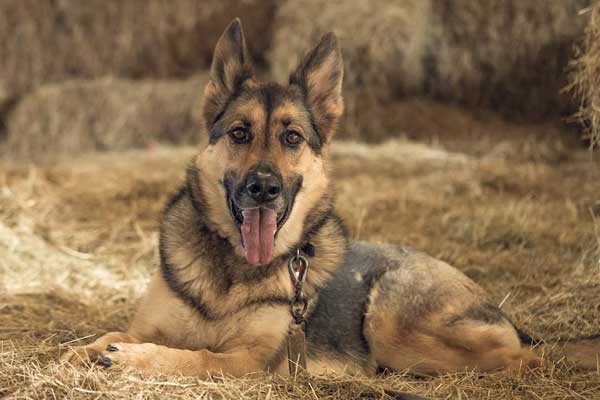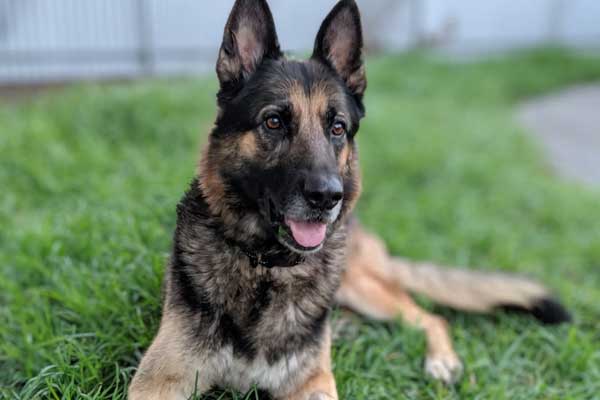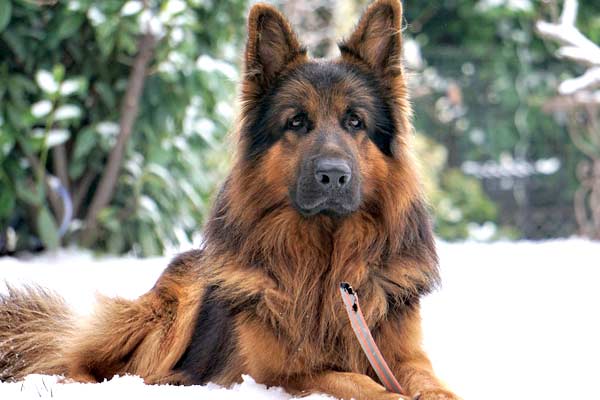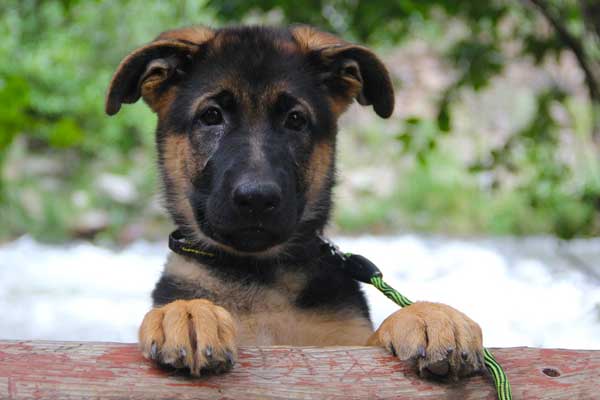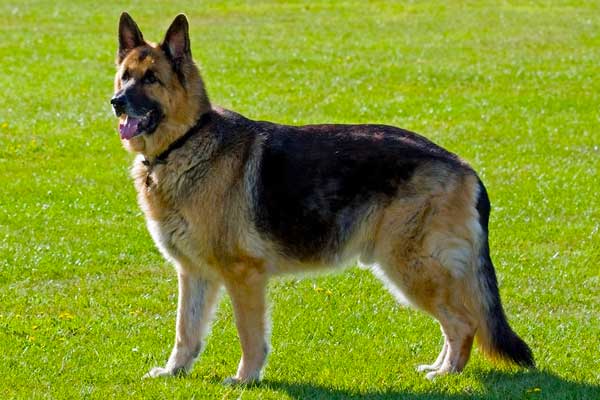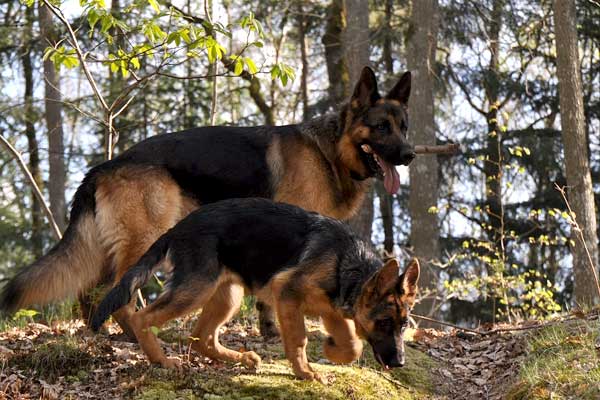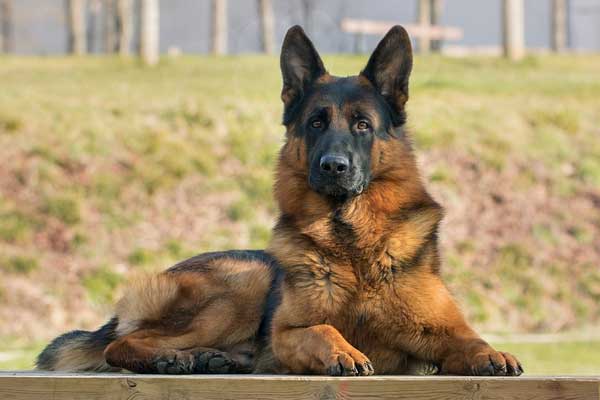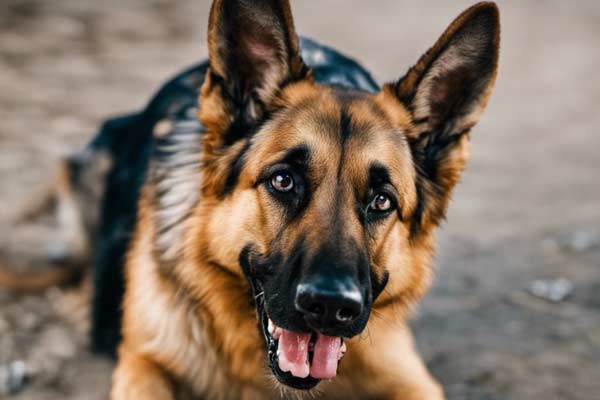A Guide to What German Shepherds Can’t Eat: Don’t Feed Fido
You may often wonder what Fido can’t eat as a German Shepherd owner. Though these dogs are known for their strong stomachs, German Shepherds can suffer from food allergies like any other breed.
Here’s a guide to what German Shepherds can’t eat, so you can keep your pup healthy and happy.
Human Foods to Avoid Feeding German Shepherds
Like most dog owners, you can share your meals with Fido occasionally. However, there are some human foods that German Shepherds should never eat.
Keeping your German Shepherd away from chocolate is crucial, as it contains theobromine, a toxic substance that can have fatal consequences for dogs. Ingestion of chocolate can lead to seizures, vomiting, and even death in dogs.
Similarly, caffeine can also be harmful to a German Shepherd, so keep coffee, tea, and soda away from Fido.
It’s essential to avoid giving your German Shepherd any sugar. Too much sugar can cause weight gain and diabetes, which can be dangerous for German Shepherds.
Additionally, onions and garlic can be toxic to German Shepherds, so keep them away from Fido’s food bowl.
Finally, avoiding giving your German Shepherd any processed foods, such as hot dogs and cheese, is best. Processed foods are high in fat and sodium, which can harm a German Shepherd’s health.
Toxic Foods to Avoid Feeding German Shepherds
In addition to the human foods mentioned above, there are some toxic foods that German Shepherds should never eat.
German Shepherds shouldn’t consume any foods or drinks that contain alcohol, xylitol, raw eggs, grapes and raisins, caffeine, sultanas, raw meat, corn on the cob, macadamia nuts, bread dough, or meat on the bone, as this could be highly toxic and even potentially fatal if ingested. Keep your beloved pup safe and avoid these items at all costs!
It’s essential to be aware of potentially toxic foods when feeding your German Shepherd:
• Alcohol: Alcohol can be toxic to a German Shepherd and can lead to a host of health problems, such as seizures and respiratory failure, and lead to severe illnesses, such as liver failure or brain damage.
• Xylitol: An artificial sweetener commonly found in candy, gum, baked goods, and other human foods. Even small amounts of xylitol can cause hypoglycemia or liver failure in dogs.
• Caffeine: Caffeine can be toxic to German Shepherds and should be avoided. Symptoms of caffeine poisoning include restlessness, increased thirst and urination, abnormal heartbeat, and vomiting.
• Grapes & Raisins: These fruits can cause kidney failure in some dogs, so it is best not to feed them grapes or raisins.
• Corn on the cob: This is dangerous for German Shepherds as it can get lodged in their intestines easily, which would require veterinary surgery for removal.
• Bread Dough: Unbaked bread dough can expand in the stomach and produce alcohol poisoning, which causes severe damage to your dog’s brains and other organs if not treated quickly.
• Meat on the bone: Bones from raw or cooked meat could splinter when consumed by dogs creating blockage or lacerations that could cause severe gastrointestinal injury.
• Macadamia Nuts: Though there is still no explanation as to why these nuts are toxic to dogs, consuming even a tiny amount can cause tremors, depression, and other symptoms.
• Raw Eggs: Raw eggs contain an enzyme that can interfere with your dog’s digestion of proteins and cause health issues. They also risk contamination with salmonella or E. coli bacteria, so keeping the eggs out of your pup’s reach is best.
• Raw Meat: Raw meat carries a high risk of containing parasites and bacteria, making it incredibly dangerous for your pup. Eating can cause food poisoning, digestive issues, and organ damage if parasites or bacteria accumulate in a dog’s system.
Finally, it’s best to avoid giving your German Shepherd any food containing bacteria that can cause food poisoning, so it’s best to stick to cooked meats when feeding your pup.
Foods That German Shepherds Can Eat and Enjoy
Though there are foods that German Shepherds can’t eat, plenty of foods are safe for your pup.
First, you can give your German Shepherd cooked meats, such as chicken, beef, or fish. You can also share your pup’s cooked vegetables, such as carrots, celery, and green beans. You can also give your German Shepherd some cooked grains, such as quinoa, rice, and oats.
Second, German Shepherds can enjoy fruits like apples and bananas. However, avoiding giving your pup grapes or raisins is essential, as these can be toxic to German Shepherds.
Additionally, you should avoid giving your pup any citrus fruits, as these can be acidic and cause stomach upset.
Finally, you can give your German Shepherd some dairy products, like cottage cheese and yogurt. However, it’s best to avoid giving your pup any processed cheese, as it can be high in fat and sodium.
Benefits of a Balanced Diet for German Shepherds
Just like humans, German Shepherds need a balanced diet to stay healthy. A balanced diet will give your pup the essential minerals and vitamins to stay healthy.
First, a balanced diet will give your German Shepherd the essential proteins to build and maintain muscle. Protein is also crucial for a German Shepherd’s coat and skin health, as it helps to keep their fur shiny and soft.
Second, a balanced diet will give your German Shepherd the essential fats to stay healthy. Fats are necessary for a German Shepherd’s brain development, as well as for their energy levels.
Additionally, fats can help to keep a German Shepherd’s coat and skin healthy, as they help to keep their fur soft and shiny.
Finally, a balanced diet will provide your German Shepherd with the essential carbohydrates they need for energy. Carbohydrates are also crucial for a German Shepherd’s brain development and can help to keep their energy levels up.
Signs of Food Allergies in German Shepherds
Though food allergies are rare in German Shepherds, it’s essential to know the signs of an allergic reaction. If you see any of the following symptoms, it’s best to take your pup to the vet immediately.
First, you may notice your German Shepherd is itching or scratching more than usual, indicating an allergic reaction to a particular food. Also, your pup may experience digestive issues, such as vomiting or diarrhea.
Second, you may notice that your German Shepherd is having trouble breathing. Also, your pup may start to experience hives or rashes and needs help walking or standing, which can be a sign of an allergic reaction, and it’s essential to take them to the vet immediately.
How to Transition Your German Shepherd to a New Diet
If you’ve decided to transition your German Shepherd to a new diet, it’s essential to do so slowly. A sudden change in diet can cause digestive issues, so it’s best to transition your pup to a new diet over several weeks.
First, introduce a small amount of the new food to your pup’s diet. You can start by adding some new food to your pup’s bowl. You can also mix the new food with the old food to make the transition easier.
Second, gradually increase the amount of the new food you’re giving your pup. As your puppy gets used to the new food, you can gradually increase it to get used to the taste and texture of the fresh food.
Finally, it’s essential to monitor your pup during the transition. If you see any symptoms of an allergic reaction, such as vomiting or diarrhea, you must take your puppy to the vet immediately.
You should also monitor your pup’s weight to ensure they’re getting enough nutrition from the new food.
Supplements for German Shepherds
Though a balanced diet is vital for a German Shepherd’s health, consider giving your pup supplements to ensure they get all the essential nutrients.
First, consider giving your pup a multivitamin. Multivitamins can help ensure your puppy gets all the essential vitamins and minerals they need to stay healthy.
You can also give your pup fish oil supplements, which can help keep their coat and skin healthy.
Second, consider giving your pup joint supplements. Joint supplements can help to keep your pup’s joints healthy and can help to reduce joint pain and inflammation.
You can also give your pup probiotic supplements to help keep their digestive system healthy.
Finally, consider giving your pup omega-3 fatty acid supplements. Omega-3 fatty acids can help to keep your pup’s coat and skin healthy and can help to reduce inflammation.
Additionally, omega-3 fatty acids can help to keep your pup’s heart-healthy and can help to reduce their risk of heart disease.
Tips for Feeding German Shepherds
Feeding your German Shepherd can be challenging, but a few tips can help make it easier.
First, it’s essential to feed your pup on a regular schedule. A regular feeding schedule ensures your dog gets all the nutrition and helps keep its energy levels up.
Additionally, it’s crucial to ensure your pup gets enough water. Having access to fresh, clean water can help to keep your German Shepherd hydrated and can help to keep their energy levels up.
Second, feeding your pup the right amount of food is essential. Overfeeding your German Shepherd can lead to weight gain, so paying attention to your pup’s weight is necessary.
Additionally, it’s important to avoid feeding your pup table scraps, as this can lead to weight gain and other health problems.
Finally, it’s essential to watch for signs of food allergies. If you notice any symptoms of an allergic reaction, such as vomiting or diarrhea, it’s necessary to take your pup to the vet immediately.
Additionally, it’s crucial to ensure your pup is getting enough exercise, as this can help keep their weight in check.
FAQ
Can German Shepherds Eat Strawberries?
You may wonder if feeding your German Shepherd strawberries is OK. The answer is yes! You can offer them fresh strawberries as a treat, but you should never feed them canned strawberries or those in syrup. Also, always watch for any signs of an allergic reaction, such as vomiting or diarrhea.
Can German Shepherds Eat Watermelon?
Yes, German Shepherds can eat watermelon, but you should remove the seeds as they could cause intestinal blockage. Additionally, it’s a good idea to remove the rind as this can cause gastrointestinal upset. Always watch for any signs of an allergic reaction when giving your pup these treats.
Can German Shepherds Eat Oranges?
German Shepherds can eat oranges with caution. Removing the orange’s seeds, peeling, and hard parts is essential, as these pieces can cause intestinal blockage or stomach upset.
Also, exercise moderation when feeding oranges to your dog as they have a moderate sugar content and could potentially cause gastrointestinal issues if too much is eaten. Monitor your pup for any signs of an allergic reaction when giving them oranges as a treat.
Can German Shepherds Eat Blueberries?
German Shepherds can safely enjoy blueberries as a snack. This berry is full of nutrients, minerals, antioxidants, and other sound good for your pup. The berries are safe to feed both large and small dogs, and they love their sweet flavor. Monitor your pup for signs of an allergic reaction when giving them blueberries, and always provide in moderation.
Can German Shepherds Eat Peanut Butter?
Peanut butter is excellent for dogs, as it contains many essential nutrients that help promote healthy skin and coat. Yes, German Shepherds can enjoy peanut butter as a treat, and it is safe to feed them in moderation. However, ensure that the peanut butter does not contain xylitol, as this sweetener can be toxic to dogs. Give your pup peanut butter in moderation and constantly monitor them for signs of allergic reactions when introducing new foods.
Can German Shepherds Eat Potatoes?
Feeding your German Shepherd a raw potato is not recommended, as the nightshade family of vegetables contains solanine, a toxic ingredient for some dogs. Cooked potatoes, however, can be enjoyed by German Shepherds in moderation. There are many health benefits from cooked potatoes, like increased fiber intake. Be sure to cut the potatoes appropriately for canine consumption and monitor for any signs of adverse reactions when introducing this new food into their diet.
Can German Shepherds Eat Broccoli?
German Shepherds can enjoy cooked and raw broccoli, but only in small quantities. Isothiocyanates found in the florets can irritate their stomachs, so it is essential to introduce this vegetable into their diet slowly and monitor for any adverse reactions. With no seasonings or oils added, this tasty treat is a great way to give your pup extra vitamins and minerals.
Can German Shepherds Eat Shrimp?
Shrimp can be a healthy option for your German Shepherd as they are packed with phosphorus, necessary for healthy bones, and antioxidants to help fight free radicals and reduce brain aging.
Additionally, shrimp are low in fat, calories, and carbohydrates, which makes them great for dogs on a diet. However, it is essential to note that shrimp are high in cholesterol, so it is best to feed them as an occasional treat rather than as part of their regular diet.
Conclusion
Feeding your German Shepherd can be challenging, but ensuring Fido gets all the nutrition they need to stay healthy is crucial.
Here’s a guide to what German Shepherds can’t eat and tips for feeding your pup a balanced diet.
Just remember to watch for signs of food allergies and to take your pup to the vet immediately if you notice any. With these tips, you can keep your German Shepherd healthy and happy for years.

